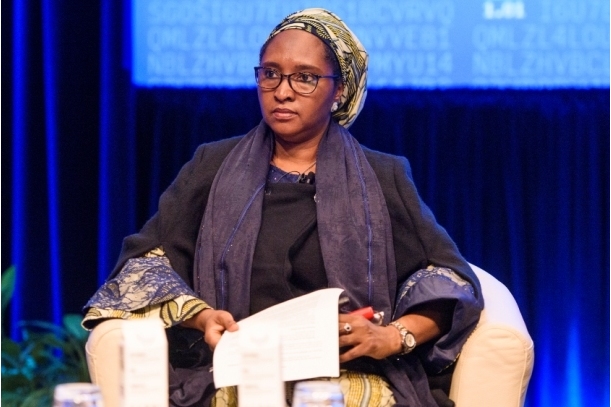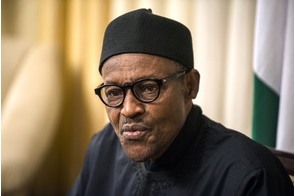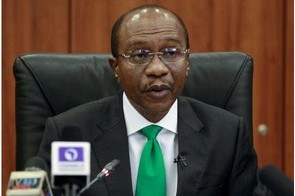Latest News
Outlook of Nigeria’s economic growth is subdued – IMF

News Highlight
To strengthen the outlook, IMF advises major reforms in fiscal, exchange rate, trade and governance to alter the long-running lacklustre growth path.
In its statement, today, following the conclusion of its policy consultation with the Nigerian authorities, the International Monetary Fund (IMF) said the outlook of the country’s economic growth is subdued. The statement acknowledges that the economy is recovering from a historic downturn, helped by government policy support, rebounding oil prices and international financial aid.
IMF noted that Nigeria exited the 2020 recession in Q4 of that year, earlier than expected. It said Nigeria’s economic output rose by 5.4 percent (year-on-year) in Q2 2021, mainly reflecting base effects from transport and trade sectors and continued strong growth in the IT sector. However, manufacturing and oil sectors remained weak, reflecting continued foreign exchange shortages, and security and technical challenges.
IMF also noted that headline inflation rose sharply during the COVID-19 pandemic reaching a peak of 18.2 percent year-on-year in March 2021 but has declining in recent months, helped by the new harvest season and opening of the land borders. Reported unemployment rates are yet to come down although COVID-19 monthly surveys show the employment level to be back at its pre-pandemic level.
Despite the containment of the spread of infections and death, IMF said the COVID-19 pandemic has a lasting imprint on the vulnerable. The economic and social impacts of the pandemic have been more daunting with rising food insecurity and an increase in the already-high levels of poverty. While significant progress has been made in vaccine procurement, less than 3 percent of the eligible population has been fully vaccinated reflecting limited vaccine supply, delivery bottlenecks and high vaccine hesitancy.
IMF projects real GDP growth of 2.6 percent for Nigeria by year-end and expects growth in the range of 2.6 – 2.7 percent per annum over the medium term, which is just above the population growth rate implying stagnant per capita income in the medium term. It also projects inflation rate to remain in double-digits, in the absence of monetary policy reforms.
“There are significant downside risks to the near-term outlook arising from the uncertain course of the pandemic and the domestic security situation. In the medium term, there are upside risks from faster-than-expected reaching of the Dangote refinery’s production capacity along with effective implementation of the 2021 Petroleum Industry Act in terms of higher manufacturing production and investment in the oil sector,” IMF noted.
To strengthen the outlook, IMF advises major reforms in fiscal, exchange rate, trade and governance to alter the long-running lacklustre growth path. “On the immediate front, fiscal and external imbalances require removal of regressive fuel and electricity subsidies, tax administration reforms and installing a fully unified market-clearing exchange rate. Over the medium term, moving away from inward-looking policies through trade, monetary and foreign exchange reforms, enhancing public trust through governance and fiscal transparency reforms, and improving welfare through job creation and agricultural reforms are priorities. Fiscal policy: Remove fuel and electricity subsidies and implement revenue-based fiscal consolidation,” IMF advises.
IMF also observed that the banking sector has been resilient thanks to ample pre-crisis buffers. Financial inclusion continued to improve despite the pandemic but remains considerably below Nigeria’s ambitious inclusion targets. The mission said it supported the time-bound debt relief measures currently in place and recommended vigilance to guard against financial stability risks. It also said that given the large number of projected new entrants in the labour force and stagnant living standards, economic growth needs to increase jobs and improve worker welfare. And whereas there are ongoing efforts to improve transparency and governance, IMF said more is needed to build public trust to implement difficult but needed reforms.
Related News
Latest Blogs
- Access Bank as a catalyst for change
- The case for EVs in Nigeria
- A call for non-judicial resolution of erroneous bank transfers
- Despatches from the US on democracy
- The 2024 U.S. election and Nigeria
Most Popular News
- Exxon Mobil sells stake in Mobil Oil Nigeria to Nipco Investments
- AfDB signs $50 million SME financing pact with Bank of Industry
- UNESCO maps 4,500 species with pioneering eDNA programme
- Sales growth of EVs is falling while hybrids are revving up – Euromonitor
- Swedfund, IFU invest $44 million in renewable energy in Southern Africa
- Africa Finance Corporation secures $300 million loan from Indian lenders






